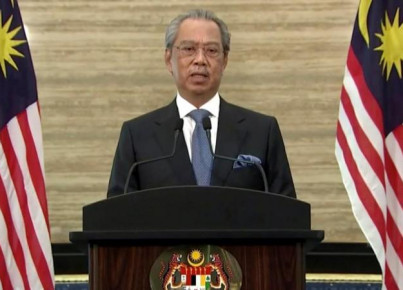The crisis has hit the country mainly from an economic point of view, but there are also opportunities
With the aim of better understanding how Malaysia coped with the health crisis and its economic and social impact, on May 19th the Italy-ASEAN Association organized a webinar with Zuraida Kamaruddin, Malaysian Minister for Housing and Local Government, and Giovanni Andrea Toselli, CEO of PwC Italy.
Today, like most countries, Malaysia is suffering the consequences of the Covid-19 pandemic. However, the Malaysian government was able to promptly put in place significant measures aimed at tackling the medical, economic and social impact of the crisis.
With regards to the containment of the health crisis, as soon as the numbers started to grow in mid-March, the government immediately imposed lockdown and social distancing measures in the country, leaving only essential medical and grocery services open and active. No large gathering or private visits to friends and relatives were allowed, not even to celebrate Ramadan. Moreover, all people coming from abroad have to undergo two weeks of quarantine in special medical facilities, and only when checked will they be allowed to return to their homes. The government also dealt with the case of the many local workers operating in Singapore, developing a common protocol to protect the safety of all the citizens. To complete its approach with a regional dimension, Malaysia is engaging with ASEAN partners to develop a single coordination protocol aimed at effectively dealing with the consequences of the health crisis throughout South-East Asia. To date, the Malaysian authorities' intention is to phase out the containment measures gradually until 9 June, with a cautious and proportionate approach.
As for the economic impact of the pandemic, the government promptly intervened with strong measures to stimulate the economy and support businesses and workers. Among the main actions taken by the Malaysian government that are worth mentioning: the suspension of payment for rents, the extension of tax deadlines for SMEs, measures to support the unemployed and infrastructure investments. The stimulus packages for the economy have been among the most substantial in the Asia-Pacific area and for the moment Malaysia leads the ranking of ASEAN countries with an intervention of about 65 billion dollars. Despite the considerable effort however, the Malaysian Central Bank estimates the country's GDP growth in 2020 to be between -2% and 0.5%. The sector that is suffering the most for the moment is tourism, a fundamental asset of the Malaysian economy. The government is planning major support plans with the aim of boosting local tourism and relaunching international arrivals, when the conditions will allow it.
It is however interesting to highlight, that during this emergency, some sectors have had the opportunity to expand and develop. E-commerce platforms are growing in the country and demand for digital services is increasing. Smart-working is contributing to transform the scenario, generating new trends and creating opportunities. In addition, after the impact of this crisis, people seem to be more sensitive towards environmental and health issues in the country.
It is therefore important to underline that despite the economic and social consequences that the Covid-19 crisis is causing in Malaysia, the government’s prompt response and the dynamism of the Malaysian economy still allows the country to offer interesting opportunities for investors, especially with regards to the digital and tech sectors.
Article edited by Tullio Ambrosone.






